Chinchillas are rodents that are often kept as pets. The average lifespan of a domesticated chinchilla is 10 to 15 years, with some living as long as 20 years. Many things can influence the lifespan of a chinchilla, including genetics, living conditions, and quality breeding. It is important for chinchilla owners to provide their pets with the best care possible to ensure a long and healthy life.
It is important for people who want to buy a chinchilla to know how long the animal is expected to live and make sure they can take care of it for many years. In this article, we will discuss the chinchilla’s lifespan and how you can keep your domestic chinchilla happy and healthy.
Life expectancy of a wild chinchilla
A wild chinchilla’s lifespan is usually a lot shorter than that of a chinchilla that has been raised in a home. This is because they face many dangers in the wild, including
Prey
Chinchillas are food for many animals in the wild, including birds of prey. They have no control over weather conditions, including extreme heat. Additionally, they can also be subjected to limited food and water, making it difficult for them to obtain the essential nutrients that they need to survive.
Fur trade
Chinchillas are hunted for their fur, which has significantly reduced wild chinchilla populations, making it even more difficult for them to survive. Wild chinchilla populations are in danger of dying out in many places, and conservation efforts are under way to protect and keep these animals alive.
Habitat destruction
Sadly, human activities such as deforestation, urbanisation, and agricultural expansion are frequently destroying chinchilla habitats. Habitat destruction can lead to population declines as well as increased competition for resources, disease, and other health problems, which can further impact their survival.
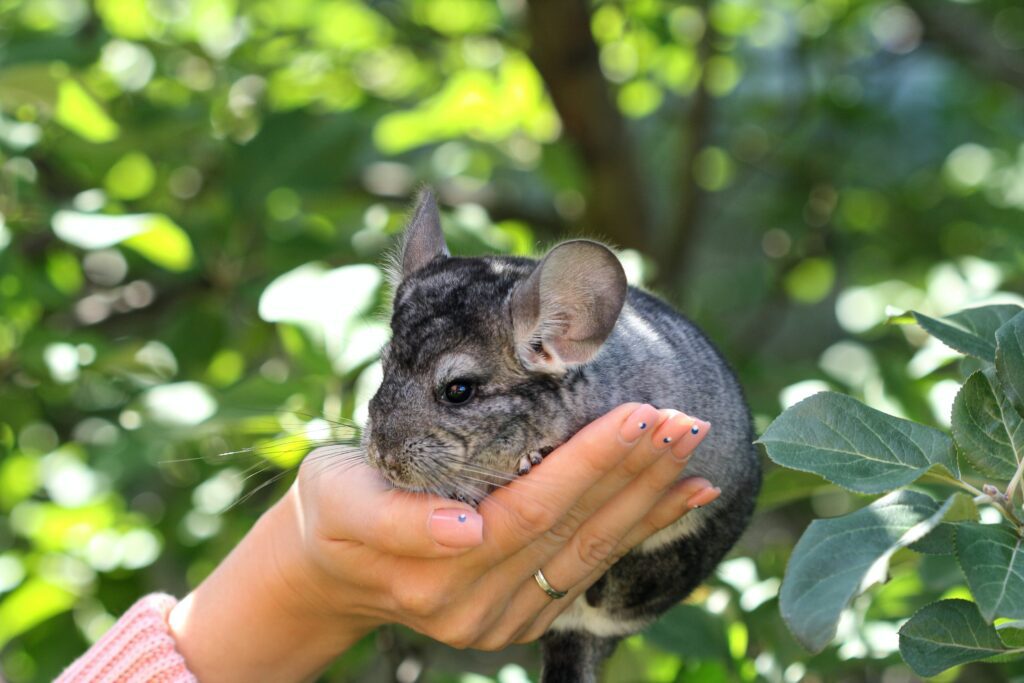
Average lifespan of a pet chinchilla
As mentioned above, the average lifespan of a chinchilla is between 10 and 15 years. How long your chinchilla lives will depend entirely on how well you care for it. If you provide your chinchilla with everything it needs, you can expect it to live a long and happy life. This includes providing a cage that meets its needs, a healthy diet, and regular preventative care. Chinchillas that are kept as pets tend to have a much longer lifespan than their wild counterparts.
Tips for extending the life of your pet chinchilla
Maintaining the correct temperature and humidity
The best way to make sure your chinchilla lives a long time is to keep its environment at a constant temperature of between 60°F and 75°F. Chinchillas have thick, dense fur, which is great if they are living in their natural environment because it is a lot colder there, especially at night. However, domesticated chinchillas live in much warmer climates, and their fur makes it difficult for them to stay cool. Never place your chinchilla in direct sunlight or near a heat source.
Since chinchillas are native to a desert environment, special care must be taken when keeping them in a humid environment. Try to keep the humidity under 50% with the help of a dehumidifier; doing so will help prevent any mould or bacteria from growing on their fur.
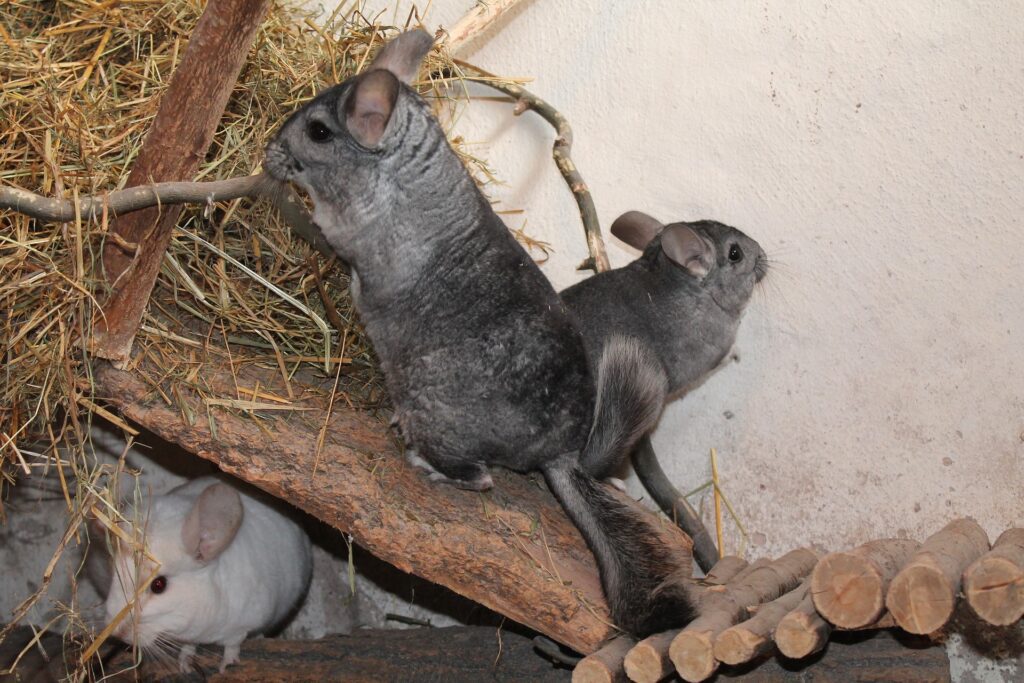
Appropriate diet
It is important to give your chinchilla a balanced diet of high-quality hay and pellets that are made specifically for them. Avoid giving them sugary foods like fruit and vegetables; chinchillas are diabetic, and this can lead to hypoglycemia and seizures. Fruit, vegetables, nuts, and seeds would not be available to your chinchilla in the wild, so you shouldn’t feed them to your pet.
Fresh Water
Make sure your chinchilla has access to fresh water at all times. You should provide them with a water bottle; it is important not to get their fur wet as it takes a long time to dry, which can lead to skin infections. You will need to change the water daily and clean the water bottle on a regular basis to avoid bacteria growth.
Dust bath
To maintain healthy fur, your chinchilla must take a daily dust bath. They use this method of self-cleaning rather than water. It is recommended that chinchillas take a dust bath every 2 to 3 days. Taking a dust bath keeps their fur in good condition and can also help them feel cooler. In the summer, you can put the dust bath in the fridge to help cool your chinchilla even more.
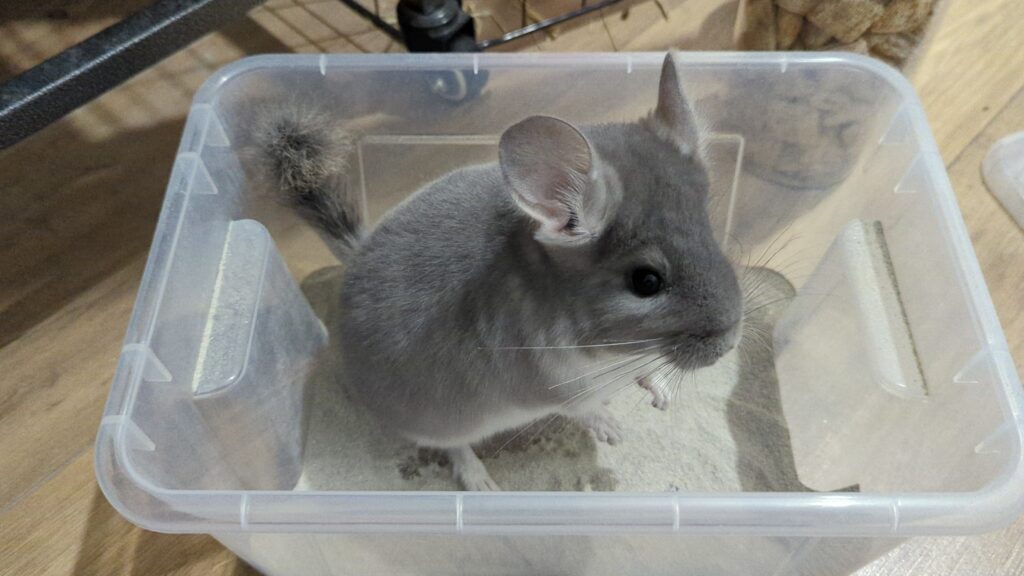
Adequate Housing
Provide your chinchilla with a spacious cage that is at least 36 inches long, 24 inches wide, and 18 inches tall. Make sure the cage is made of safe materials and that there are plenty of hiding places, sticks, and toys for your pet to chew on. Chinchillas’ teeth continually grow, and toys help to keep them short.
Socialisation
Chinchillas are social animals and benefit from living with other chinchillas. Consider getting a second chinchilla for them to bond with. Sometimes it isn’t possible to bond two chinchillas, so a chinchilla buddy can be provided for them. A “chinchilla buddy” is a soft toy made using chinchilla-safe fabric, which will essentially take the place of an actual chinchilla.
Regular Exercise
Chinchillas are active animals and will spend lots of time running around; provide them with lots of wooden ledges and a large exercise wheel. The exercise wheel should be a minimum of 14 inches wide to avoid arching their back while using it. You can also let your chinchilla out of its cage for supervised playtime 2 to 3 times a week. Spend as much time as possible with your pet. Hand-feeding and giving them treats can help you bond with your pet.
Regular health checks
Chinchillas are rodents and will need a vet who is familiar with them. An exotic vet will have a lot more experience with chinchillas, so make sure there is one in your area. Have your chinchilla checked out by a vet on a regular basis to make sure it doesn’t have any medical issues that you aren’t aware of and be prepared for emergency treatment. Chinchillas are a relatively healthy animal, but they can be prone to certain health conditions.
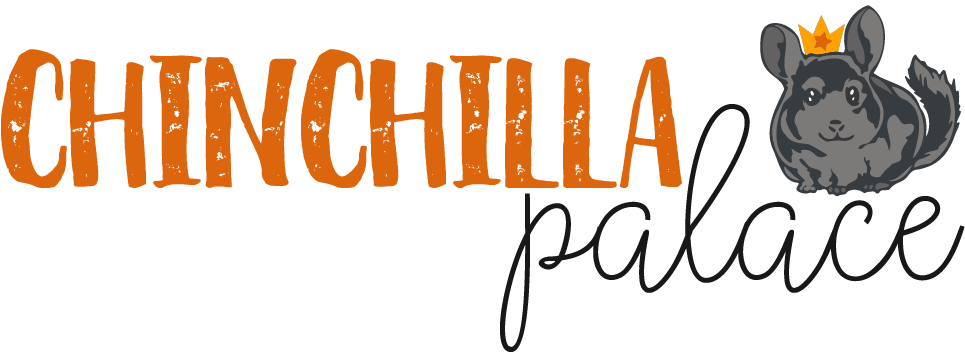
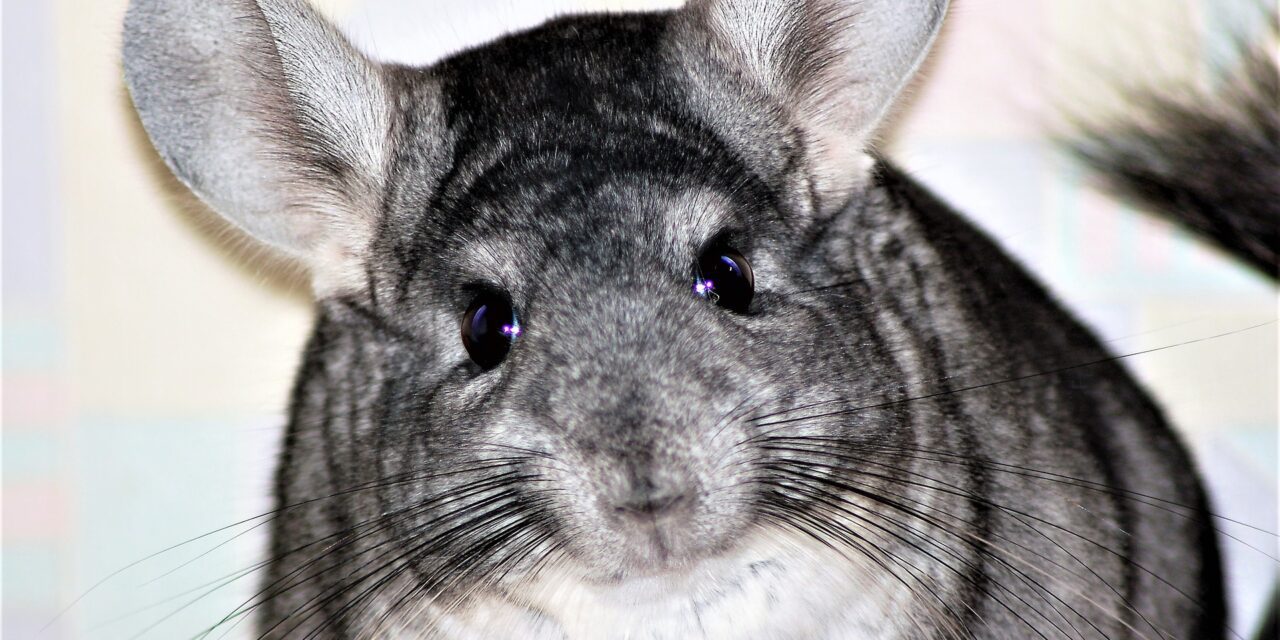
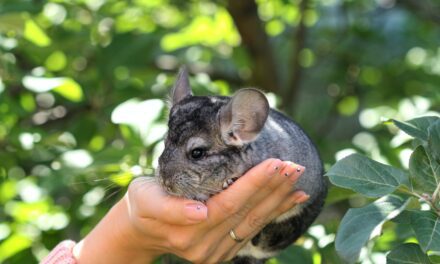
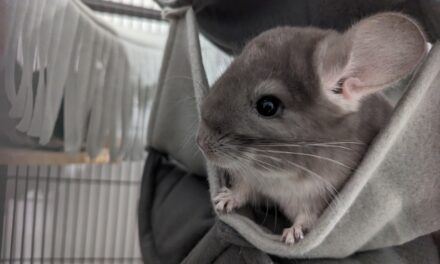

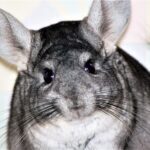


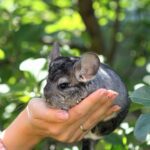
Recent Comments